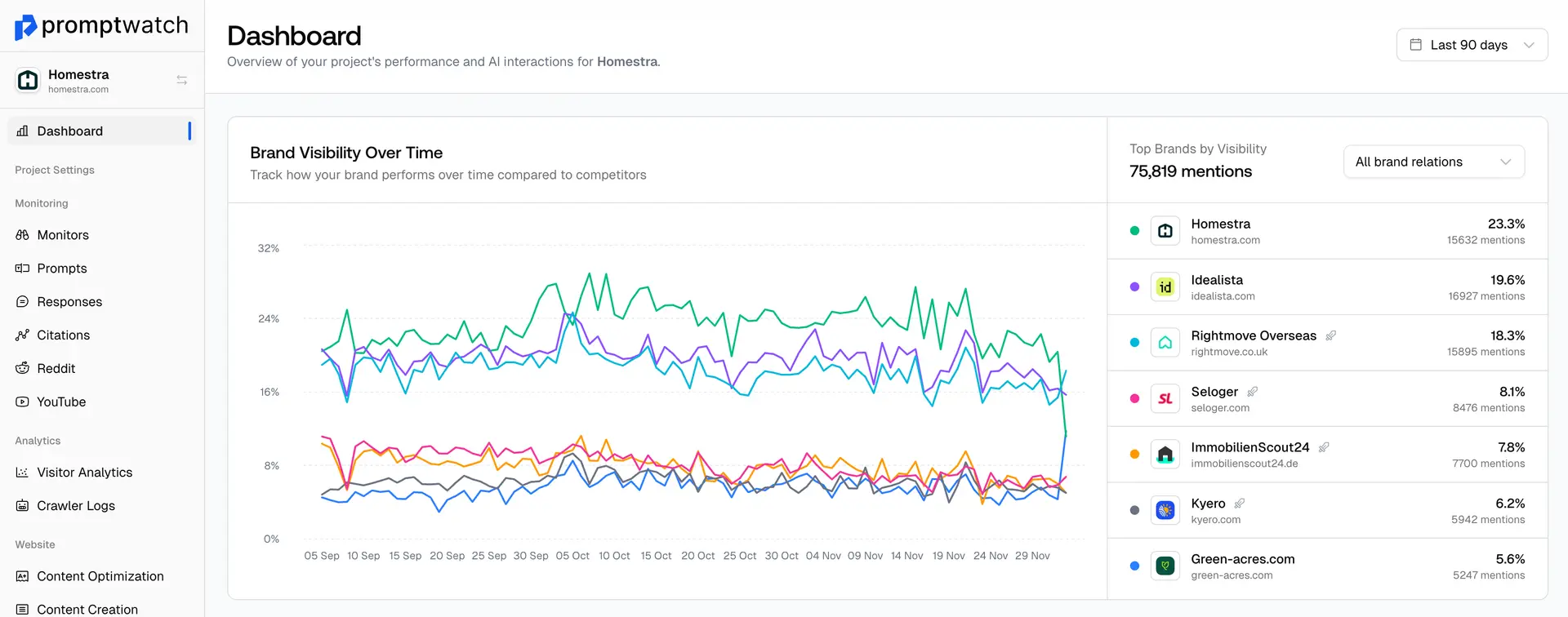Definition
AI Search Performance encompasses the comprehensive measurement and analysis of how content, brands, and websites perform across AI-powered search engines and platforms including ChatGPT, Claude, Perplexity, Google AI Overviews, and Bing Copilot. This holistic metric goes beyond traditional search analytics to capture the new reality of AI-mediated information discovery.
Unlike traditional search performance which focuses on rankings, clicks, and traffic, AI search performance measures citation frequency, brand mention quality, reference consistency across platforms, response sentiment and context, query coverage and topic authority, and user engagement with AI-generated content that includes your brand or information.
Key performance indicators for AI search include reference rate (percentage of relevant queries where your content is cited), visibility score across different AI platforms, sentiment analysis of AI-generated mentions, query coverage (range of topics where you appear), brand recall in AI responses, and attribution accuracy in AI citations.
Factors that influence AI search performance include content quality and authority signals, structured data implementation, topical expertise and thought leadership, citation-worthy content elements (statistics, quotes, data), domain authority and backlink profile, content freshness and regular updates, social media presence and sentiment, and directory and database listings.
Measuring AI search performance requires specialized tools and methodologies including automated query testing across multiple AI platforms, brand monitoring and sentiment analysis, citation tracking and context analysis, competitive benchmarking against industry peers, and correlation analysis between traditional SEO metrics and AI visibility.
Businesses optimizing for AI search performance need to track performance across multiple dimensions and platforms, as each AI system has different preferences and algorithms. Success in AI search performance indicates strong positioning for the future of search, where AI intermediaries increasingly control information discovery and recommendation.
Examples of AI Search Performance
- A technology company tracking AI search performance across five major platforms to optimize their thought leadership content strategy
- A financial services firm measuring AI search performance to understand how their expertise is represented in AI-generated financial advice
- An e-commerce brand analyzing AI search performance to improve their presence in AI-powered shopping recommendations
